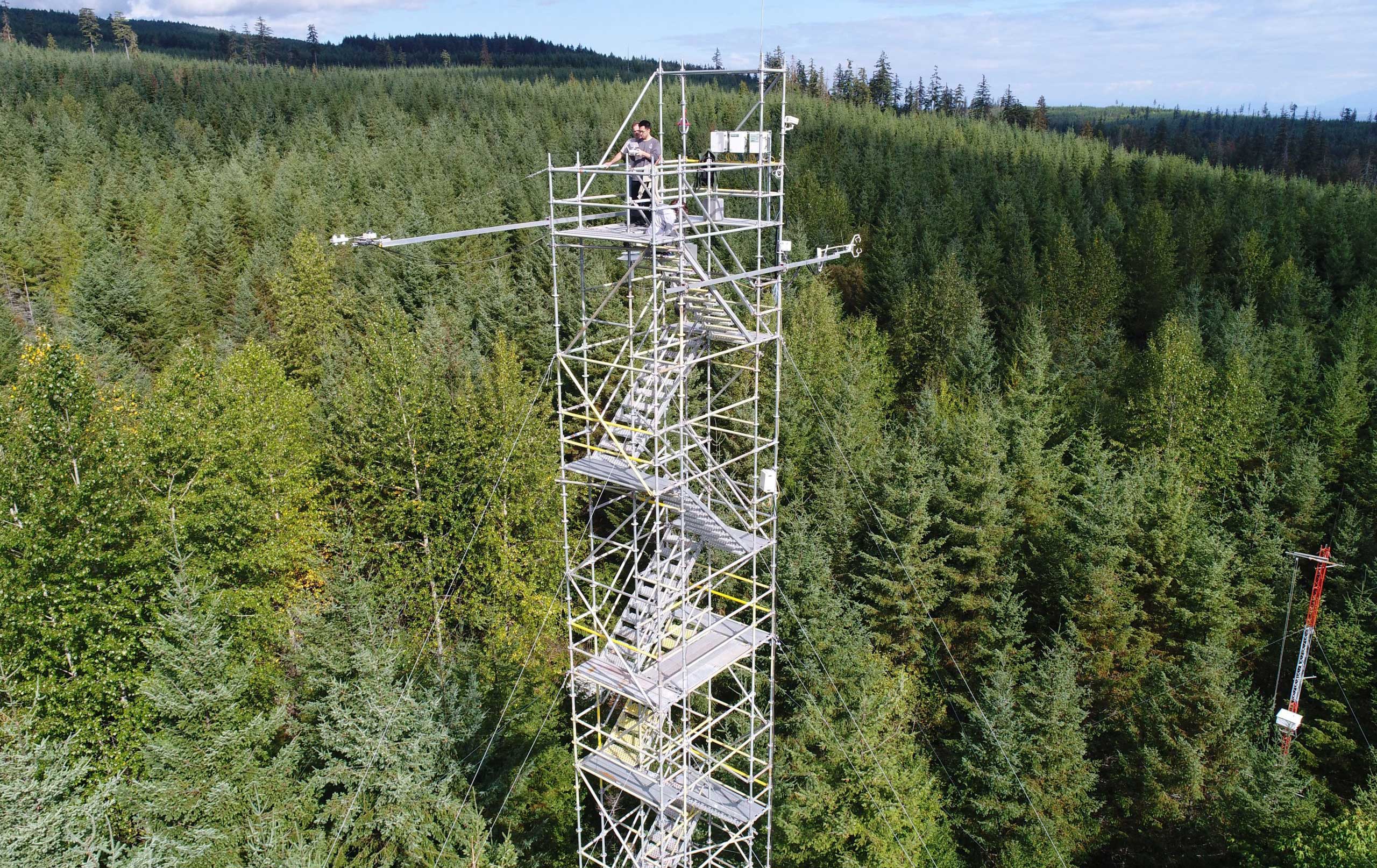
A flux tower measuring the exchange of carbon dioxide, water, and other greenhouse gases between the ecosystem and the atmosphere at an evergreen needleleaf forest in British Columbia. The site is one of more than 1,000 locations involved in the FLUXNET Coordination Project. Photo by Sung Ching-Lee.
Global ecosystems provide services that sustain society, including providing food, fiber and timber, and water cycle regulation. An important service is the sequestering of carbon dioxide from the atmosphere, which slows the rate of climate change. Understanding ecosystem-atmosphere interactions, and the response of these to environmental change, is an urgent challenge.
A project led by Trevor Keenan, an assistant professor in the Department of Environmental Science, Policy, and Management (ESPM), has received $2 million in funding from the National Science Foundation (NSF) to continue essential research in this area. Named the FLUXNET Coordination Project, it will link over ten existing national and international networks focused on continuous observations of ecosystem-atmosphere interactions at over 1,000 locations around the world. The project will fill fundamental knowledge gaps in science, engineering, and societal issues associated with ongoing changes in ecosystem function and the related cycling of carbon and water.
FLUXNET is an existing global network of regional networks, consisting of scientists using micrometeorological tower sites to measure the exchange of carbon dioxide, water, energy, and other greenhouse gas fluxes between ecosystems and the atmosphere. Such measurements are essential for understanding ecosystem function, calibrating space-borne observations, and developing models used to project future climate.
The new FLUXNET Coordination Project will create multiple research and training opportunities, helping develop the next generation of FLUXNET to be a self-sustaining global collaboration focused on supporting early career scientists, expanding the diversity of scientists, biomes, and climate regions involved, and empowering international collaboration. The project will develop data-focused processing protocols and pipelines, as well as people-focused education and exchange opportunities. Network activities include annual in-person meetings at national and international venues, monthly webinars, workshops and synthesis publications, and student and early-career researcher personnel exchanges.
“This is an exciting opportunity to advance ecosystem science by supporting the global research community. FLUXNET observations are used in hundreds of papers each year, and this project will help greatly amplify that impact,” Keenan said.
The funding comes through NSF’s Accelerating Research through International Network-to-Network Collaborations (AccelNet) program, which supports strategic linkages among U.S. research networks and complementary networks abroad that will leverage research and educational resources to tackle grand scientific challenges that require significant coordinated international efforts.
Co-Principal Investigators on the project are David Moore at the University of Arizona and Kimberly Novick at Indiana University, who will run FluxCourse, a summer school experience for early career scientists focusing on land-atmosphere fluxes, which takes place each summer at the University of Colorado Mountain Research Station.
Other UC Berkeley faculty involved in the project include Dennis Baldocchi, an ESPM professor who directed a previous FLUXNET project, and Margaret Torn, an adjunct professor in the Department of Energy and Resources and a senior scientist at the Lawrence Berkeley National Lab, who is principal investigator of the AmeriFlux network.
More information about the award can be found on the NSF website.
